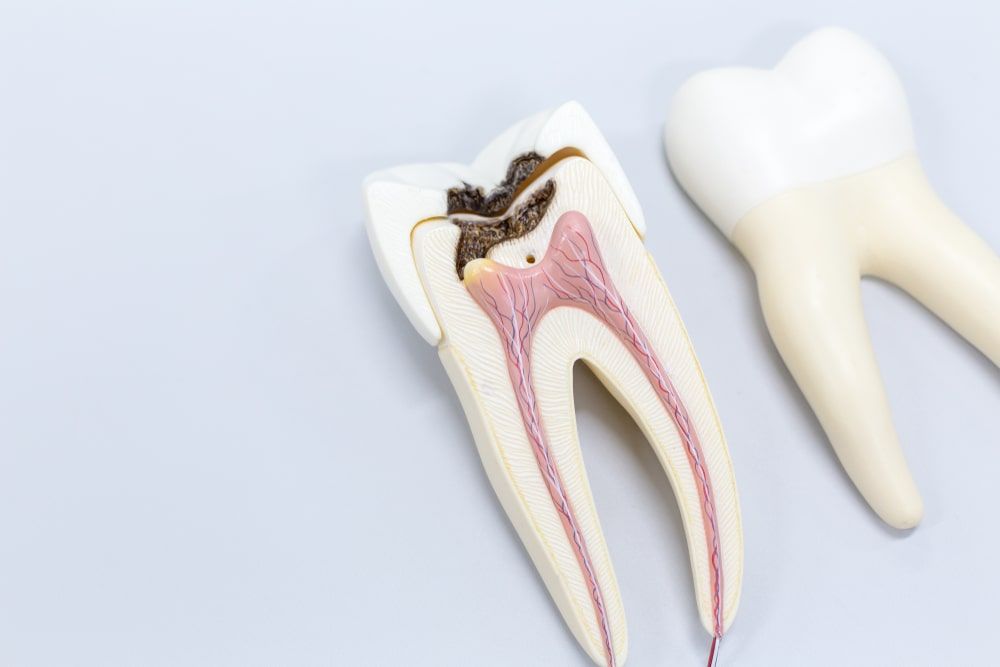Root canal treatment is a common dental procedure performed by dentists and endodontists. Depending on your general dentist’s preference and comfort level, a patient may be referred to an endodontist for completion of the procedure. Regardless, the goal of this procedure is to retain a natural tooth, which would otherwise require extraction.
The root canal of a tooth is the hollow space in the center of the tooth and root(s), which contains the soft dental pulp (root canal tissue). This tissue was primarily involved in the formation of the tooth during childhood. The dental pulp is basically composed of blood vessels, nerve, and connective tissue.
A tooth can develop the need for root canal therapy from a variety of reasons. Commonly, a history of deep decay, deep decay and subsequent restoration-fillings, crowns, etc., can ultimately lead to an inflammation and/or infection of the soft root canal tissue over time. Depending on the severity, the presence of a crack or history of dental trauma may also create the need for root canal therapy.
Root canal treatment involves the removal of the inflamed or infected tissue in the central portion of a tooth. A biocompatible filling material is then placed within the disinfected root canal system. Eventually, a permanent crown or permanent filling material will need to be placed to protect the tooth.
Frequently Asked Questions
Do I need root canal treatment?
You may need a root canal if tooth decay or a broken tooth has allowed the pulp to become infected and inflamed. Signs and symptoms to watch out for include temperature sensitivity, swelling, drainage, odor, pain, and discoloration of the tooth. It is important to treat infections quickly, as delaying treatment can result in severe tooth pain and abscess.
What should I expect to happen during my root canal?
Your endodontist will numb your tooth with a local anesthetic and administer analgesia if needed. Once the tooth is numb, an opening will be made in the top of your tooth to access the canals. Your endodontist will use tiny instruments to remove pulp from your tooth and prepare it to be filled. You will return at a later date to have your root canal capped with a crown or other type of restoration that will give it the appearance and function of a natural tooth.
Will I need to follow any post-operative instructions following my root canal treatment?
You will be allowed to drive yourself home from your root canal visit and may even wish to return to work the same day. However, it is normal for your tooth to be sensitive in the days following your procedure. You’ll need to avoid biting anything with your filled tooth, as this can cause it to break or fracture. So long as the tooth heals normally and you experience no complications, you can return to your endodontist within a month to have a crown or other restoration placed on the tooth.







